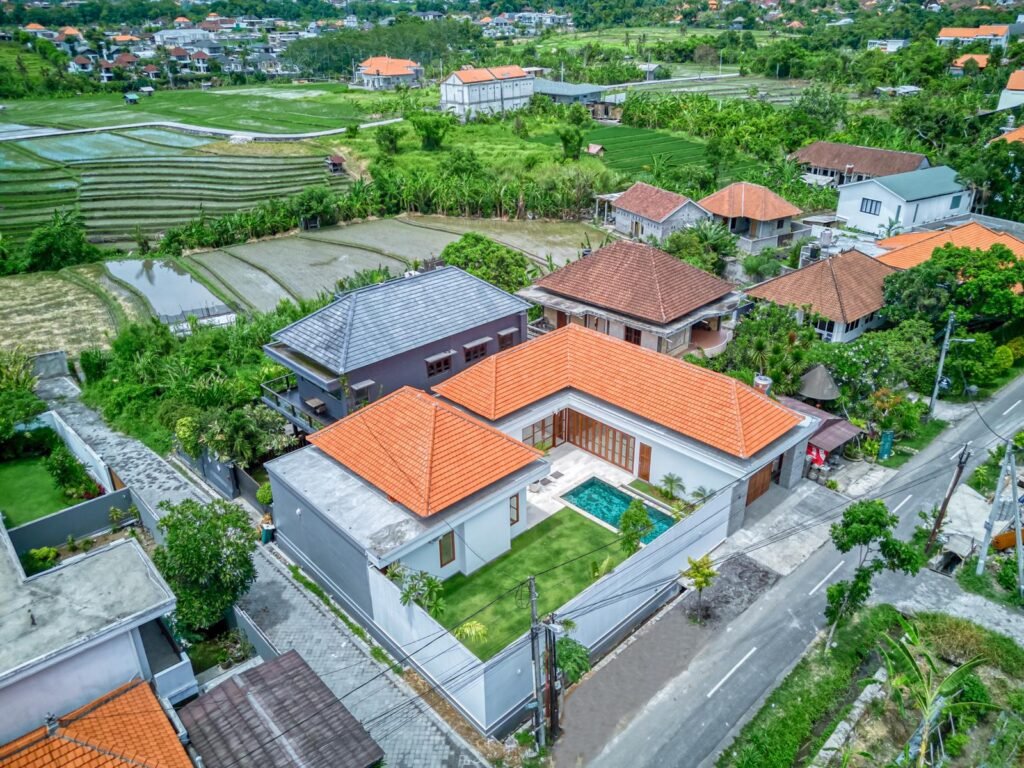Newly-elected Governor of Bali, I Wayan Koster, assessed that there is no need for a moratorium on the construction of hotels and villas. The government only needs to effectively monitor the construction of hotels and villas.
“There is no need for a moratorium, what is more important is strict supervision,” Koster said after officially appointed as the new Elected Governor of Bali at the Trans Hotel, Thursday (9/1).
Koster did not specify the method of supervision, but emphasized that there will be policies that regulate property ownership by foreign nationals, following the increase in property ownership by foreigners in Bali.
Previously, the Acting Governor of Bali, Sang Made Mahendra Jaya, stated that the focus of the moratorium on hotel and villa construction currently applies in the Sarbagita area (Denpasar, Badung, Gianyar, Tabanan).
This moratorium aims to prevent land conversion, collect villa data, and organize the licensing system and property development.
The Bali Provincial Government has even submitted a moratorium application to the Central Government. Luhut Binsar Pandjaitan, former Coordinating Minister for Maritime Affairs, also mentioned that this moratorium will be discussed in a limited meeting, but until now there has been no further news.
Restriction Should Be Adjusted
I Nyoman Giri Prasta, Deputy Governor of Bali once also admitted that the tourism sector is still heavily dependent on investment in accommodation businesses, including hotels and similar facilities.
“There is indeed a moratorium. We fully support that. However, the moratorium must be studied holistically, carried out comprehensively. We must be involved, such as Badung, Denpasar, Gianyar, and Tabanan,” said Giri Prasta in the Canggu area, North Kuta, Friday (13/12/2024), quoted from Kumparan.com.
He also mentioned that investment restrictions cannot be fully implemented because they involve the economic interests of local communities, who sometimes sell or lease their land for tourism property development to improve the quality of life.
Giri also argued that restrictions on hotel construction should be adjusted to the carrying capacity of the area. If the hotel occupancy rate is still low, as seen during the high season, then the moratorium should not be enforced.
However, he realized that rapid development has the potential to lead to land conversion, but he emphasized that as long as land use is in accordance with spatial planning regulations, it is not a problem.
“Not to mention that there is community land that does not have access to water so that it cannot be used for agriculture. So, the allocation is diverted to tourism accommodation. If we don’t give it, I can be demonstrated by the landowner community,” said Giri.
Regional Capacity and Community Rights
Regarding the moratorium, Giri suggested that the construction of hotels and similar facilities be adjusted to the carrying capacity of the region.
“In my opinion, if the hotel occupancy rate is still below 50 percent, especially during the high season like now, it feels like this moratorium is not right to do,” said the PDIP politician.
Giri realizes that the massive development has an impact on the increasing number of land that changes functions. However, he emphasized that this is not a problem as long as the designation is clear and in accordance with applicable spatial regulations.
“It is only a matter of ensuring that the rights of the community are protected in accordance with the provisions of existing regulations. I think that’s the most important thing,” he added.
Koster and Giri agreed to emphasize the importance of development control that pays attention to the carrying capacity of the region and the economy of the local community.
Based on data from the Bali Central Statistics Agency (BPS), the number of hotels in Badung in 2022 reached 380 units, with 65 of them being five-star. This number continues to increase in 2023, with a total of 413 hotels and 69 five-star hotels.
The Badung Tourism Office reported that the total number of accommodations in the area, including tourist lodges and jasmine hotels, reached 1,510 units in 2023.
Sources: Kumparan, DetikBali
Image: via Seven Stones Indonesia

